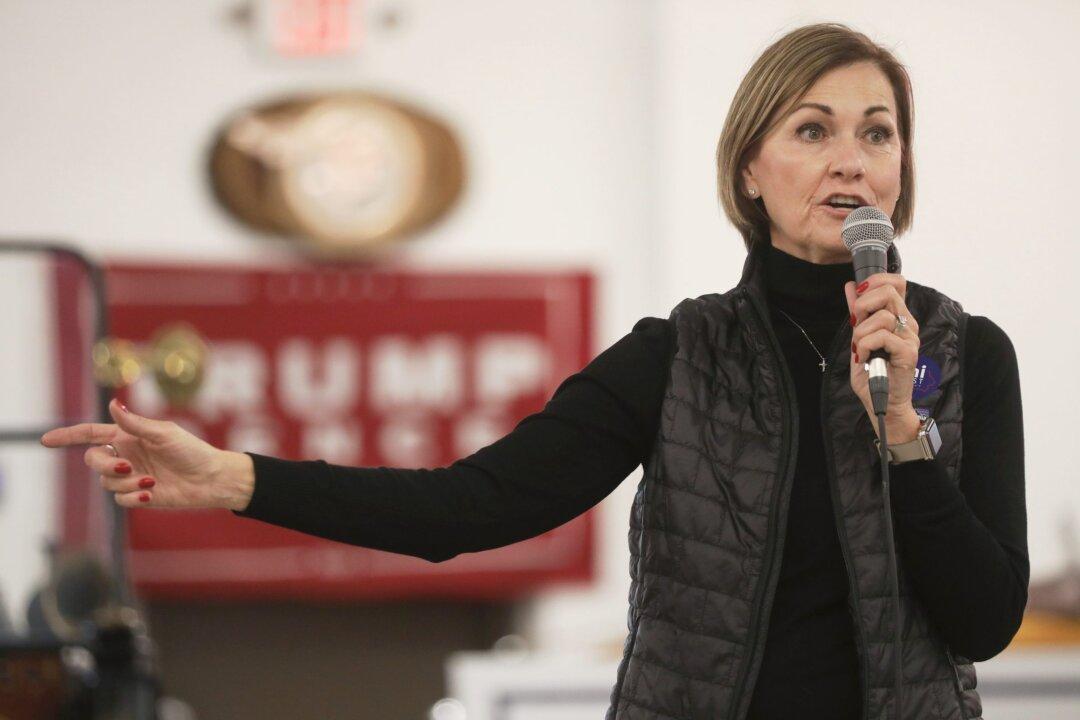Iowa Gov. Kim Reynolds has said she plans to sign into law new legislation allowing children to work in roles that were previously prohibited and for longer hours.
Reynolds, a Republican, told The Washington Post in a statement on May 4, “Iowans are proud to be known for our strong work ethic, and we want to instill those same values in the next generation.”




